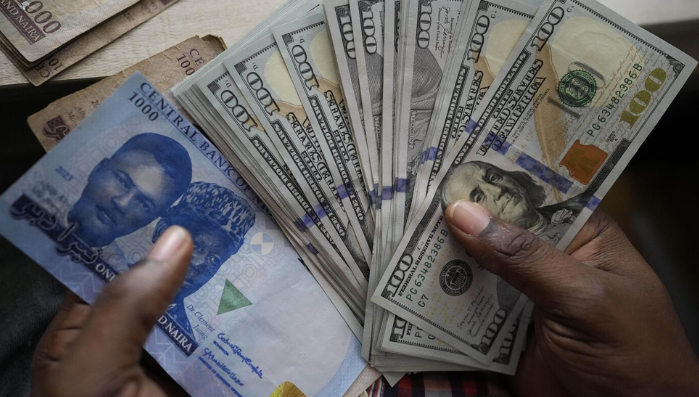Despite sustained interventions by the Central Bank of Nigeria (CBN) and an uptick in oil production, the naira concluded last week on a softer note in the official foreign exchange market, weakening by 0.14 per cent to close at ₦1,532.34 to the dollar.
The week opened on a positive trajectory, with the local currency briefly rebounding to a four-month high of ₦1,518.88/$, buoyed by improved market sentiment. However, that momentum proved short-lived, as subsequent trading sessions saw the naira ease to ₦1,530.25/$ and later to ₦1,533.11/$ before settling marginally higher at ₦1,532.34/$ on Friday.
According to data from the Nigerian Foreign Exchange Market (NFEM), the naira traded within a band of ₦1,515/$ to ₦1,538/$ over the five-day period. In the parallel market, it fluctuated more widely, ending the week between ₦1,535/$ and ₦1,544/$.
Financial analysts continue to underscore the importance of CBN’s interventions and gradually improving FX liquidity in stabilising the market. In its latest commentary, Cowry Asset Management described the market as exhibiting “mixed signals,” with the naira appreciating marginally by 0.06 per cent week-on-week to close at ₦1,544/$ in the informal market, even as it posted a decline at the official window.
“The divergent trends underscore persistent supply-demand imbalances and an FX liquidity environment that remains in flux,” Cowry noted. However, the firm maintained a cautiously optimistic outlook, citing rising oil revenues and ongoing improvements in Nigeria’s foreign reserves as potential tailwinds for the currency.
A more favourable oil production profile has also bolstered market sentiment. Figures from the Nigerian Upstream Petroleum Regulatory Commission indicate that crude oil output (excluding condensates) rose by 3.6 per cent to an average of 1.51 million barrels per day in June, up from 1.45 million in May. This marked the first time in five months that Nigeria met its OPEC production quota, reflecting enhanced security and operational stability in the Niger Delta.
Meanwhile, AIICO Capital, in its weekly briefing, highlighted that the CBN conducted targeted dollar sales during the week particularly at the start and end of trading sessions to smooth volatility. These efforts coincided with a $422 million boost in external reserves, which climbed to $37.85 billion as of Thursday.
Looking ahead, market participants are bracing for signals from the Monetary Policy Committee (MPC), which convenes this week to deliberate on interest rates and macroeconomic direction. Expectations are split: dovish voices are advocating a rate cut to consolidate gains in inflation moderation and exchange rate stability, while hawkish counterparts caution against premature easing amid global uncertainty and lingering food supply risks.
“The tone of the MPC’s communique will be the clearest signal to market participants,” analysts at Comercio Partners remarked, suggesting that traders are adopting a cautious stance in anticipation of monetary policy cues.
As Nigeria navigates an evolving FX landscape, market dynamics remain closely tied to policy clarity, external earnings, and investor confidence factors that will be decisive in determining the naira’s near-term trajectory.




